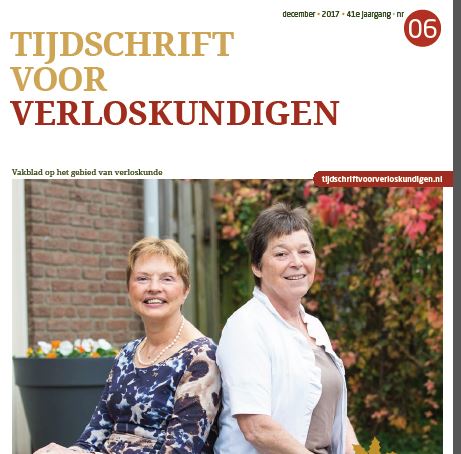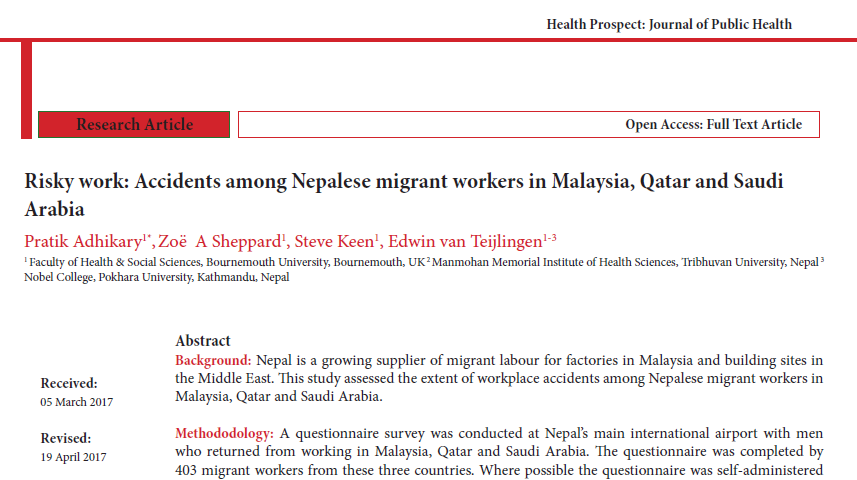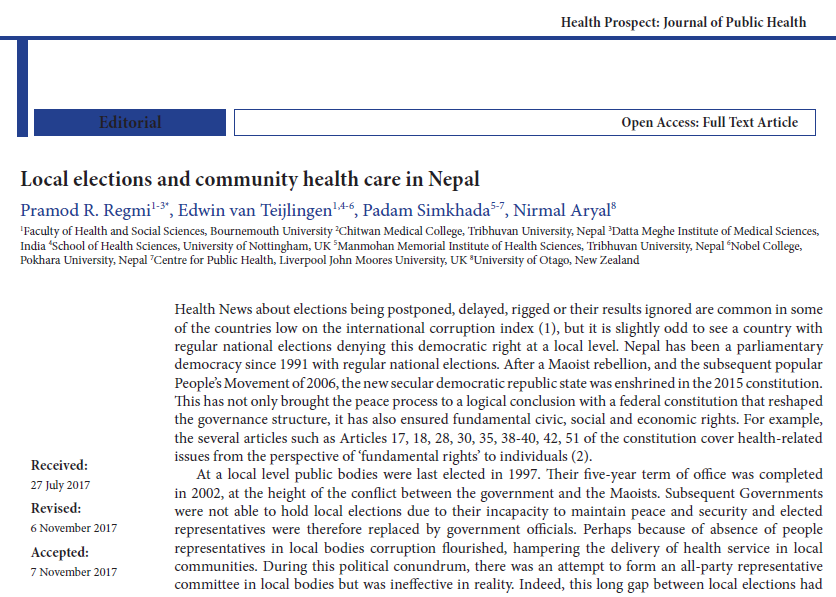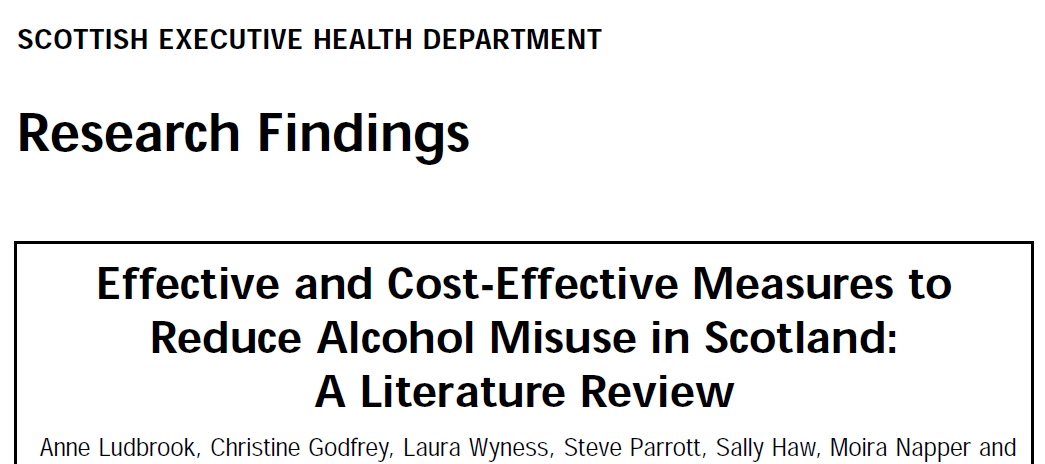Despite Sarah and Jane donning their sparkly Christmas jumpers there has been no let up this week – here is your fully stuffed pre-Christmas policy update (and not a turkey in sight)!
We’ll be back in the New Year unless anything really exciting happens next week.
Accelerated Degrees
The long awaited consultation on accelerated degrees has finally been launched. The proposals are for students to study over the summer to complete their degree within two years. These degrees would be subject to the same rigour and quality assurance standards. Institutions will be able to charge higher fees per year (to a maximum which will be 20% less than the total for 3 normal years) to cover the additional costs of teaching through the summer, research time squeeze, and rental income lost on summer lets of student rooms. However, the overall cost to the student will be less, with lower living costs as well, and interest will accrue over a shorter time before the student starts work. The OfS will be responsible for determining whether a degree course can be defined as ‘accelerated’.
The Minister’s statement said that “The current means-tested living cost support package (the “long course loan”) available to students whose courses last for longer than 30 weeks and three days each academic year will continue to provide maintenance for students on accelerated degrees on the same terms.” It is not clear whether this will be enough to cover the additional costs for students on these courses.”
Jo Johnson says that these courses will appeal to: “highly motivated students hungry for a faster pace of learning and a quicker route into or back into work”.
He continues: “The growing dominance of the classic three-year residential degree reflects more the convenience of the sector and financial incentives on providers than the needs of students for flexible ways of pursuing higher education. I believe there is significant untapped potential for accelerated courses, starting first with degrees, in higher education. They offer benefits to students of lower costs, more intensive study, and a quicker commencement or return to the workplace. Innovative providers would like to offer more of these courses but face significant financial and operational disincentives in the current system.”
And later: “Our aspiration is for the number of students enrolled on accelerated degree courses to build over the next decade to around 5% of the total undergraduate population[currently its 0.2%], and for an additional 100,000 students to have studied on this basis over that period.”
Accelerated degrees are expected to commence in September 2019, subject to parliamentary approval of the new fee arrangements. The consultation press release sets out the benefits for the public purse:
“For the taxpayer, it means significantly lower tuition loan outlay, higher rates of repayment and therefore a lower cost to the public purse of higher education. A higher proportion of students on accelerated degrees will also repay their loans in full”.
Jo Johnson and Les Ebdon expect the accelerated degrees to appeal to mature students. It’s clear that individuals currently in work, looking to take a sabbatical to upskill, then return to the sector are perfect candidates for accelerated provision. This scenario is certainly a perfect fit with the Industrial Strategy’s aspirations. It also provides students with more options –depending on how may institutions offer them and the range of subjects covered. However, there could be some bumps in the road. Presumably the admissions process will select those most capable of intense study and who do not need to work part-time to fund their living costs– which leads to questions around widening participation. How will contextual admissions apply to accelerated provision? Will mature students with family commitments be considered to have the capacity to cope with an intensive degree? And what happens to those who find the pace too much or run into financial difficulty and switch back to the traditional 3 year model – would they end up paying more in fees in total? There may be concerns about student experience in the summer when services are often reduced and building maintenance is carried out.
Sector responses:
Angela Rayner MP, Shadow Secretary of State for Education: “It seems that every higher education policy from this government comes with another plan to raise tuition fees, with students on part time degrees now facing charges of over £11,000 a year. With universities facing uncertainty over Brexit, ministers must address concerns like the impact on staff workload before imposing more major changes. So far they have offered no concrete evidence that squeezing three years of learning into two will stem the huge drop in part-time students, or lead to better outcomes.”
Professor Les Ebdon, Director of Fair Access to Higher Education: “Accelerated degrees are an attractive option for mature students who have missed out on the chance to go to university as a young person. Having often battled disadvantage, these students can thrive in higher education and I hope that now many more will be able to take up the life-changing opportunity to get a degree.”
Karl McCormack, who teaches accelerated degrees in Accounting & Finance at Staffordshire University, commented on the increased focus of students on accelerated courses. “I find that the accelerated degree offers so much more to students, including the extra focus, the drive and the immersive experience of constantly learning over the two years. Accelerated degrees appeal to a broad spectrum of students, including mature students who want to retrain and enter the workplace more quickly, and those who do not take a traditional A-level route into higher education.”
Nick Hillman, Director of HEPI: “Making two-year degrees more attractive makes sense as the current rules aren’t great and more diversity is generally good in higher education – so long as quality is maintained. So the overall idea of altering the financial rules for two-year degrees is sound or even overdue. Lower fees for two-year degrees might increase demand, probably from older students as many school leavers are remarkably price insensitive and like the idea of staying at university for three (or more) years. It also might increase the supply of two-year degrees, although getting £11,100 to educate students for 40 weeks a year (£280 a week) rather than £9,250 for 30 weeks a year (£310 a week) is unlikely to make a major difference. ‘But it remains an open question whether there is sufficient support in Parliament for a higher tuition fee cap for a minority of courses. Overall, today’s announcement may not be a game changer.”
Read more on the consultation on accelerated degrees: widening student choice in HE. Please contact Sarah if you would like to contribute to BU’s institutional response to the consultation.
Brexit
This week the Government and EU agreed continued contributions to the annual budgets for the years 2019 and 2020 (the remaining 2 years of the EU budget after the exit) as if the UK were remaining in the EU. This enables continued participation in Horizon 2020 and Erasmus+ until the end of the programmes. On Thursday evening the BBC reported this story.
The phase one negotiations concluded with assurances for citizen’s rights – hopefully reassuring for the 46,000 EU nationals within the UK university sector who can remain to work and gain settled status. Some questions remain, but it was clarified that EU citizens can live outside the UK for up to 5 consecutive years without losing their settled status.
In response UUK have stressed that phase two of the negotiations continue to be ‘hugely important’ for universities. They continue to push for access to the next European research and innovation programme (FP9) and to the Erasmus+ mobility programme. “Developing a post-exit immigration system, with minimal barriers to allow talented European staff and students to work and study in the UK, is a priority.”
Research Professional have a simple article tacking the main points of the Brexit progress: Now the real work begins. Amongst other points they highlight that with a majority of students registering an interest in studying abroad 12 months in advance the need for decision on whether EU citizens will be eligible for home fee status and loans for 2019/20 entry remains urgent.
Parliamentary Questions
Q – Joanna Cherry: What assessment she has made of the effect of the UK leaving the EU on staffing levels in universities.
A- Jo Johnson: EU staff make an important contribution to our universities. The UK and the EU have reached an agreement on citizens’ rights that will allow EU citizens to continue living here broadly as now, which will help to provide certainty to such staff in our institutions.
Joanna Cherry: Heriot-Watt University and Edinburgh Napier University in my constituency have made staff redundant, citing Brexit and the UK Government’s immigration policies as a proximate cause. Napier University has advised me that potential staff members from other EU countries are turning down job offers. What concrete reassurance can the Minister give these international award-winning universities that Brexit will not further affect their staffing levels?
Jo Johnson: That uncertainty is completely unnecessary. I point the universities to the joint report issued last Friday by the Commission and the UK Government that points to our continued participation in programmes such as Horizon 2020 not just up until March 2019, but until the end of 2020. They should appreciate that important reassurance.
Paul Masterton (Con): Many of my constituents in East Renfrewshire work in academic research and are concerned about the impact of Brexit on collaboration with European institutions. What reassurance can the Minister give to my constituents that Brexit will not put that collaboration in doubt?
Jo Johnson: They can take reassurance from the statement that was put out on Friday. We will participate in Horizon 2020 and Erasmus+ beyond the point of Brexit—until the end of 2020. That is of fundamental importance to our scientific endeavour.
Policy impact
A Research Professional article: University research ‘failing to influence parliament’ discusses the dominance of other sectors in capturing the parliamentary ear. Non-governmental organisations are most successful in translating their lobbying into policy with ‘other interest groups’ having far greater influence. University research contributed less than 10% of the evidence to elect committees. David Willets pointed out that the public funding of R&D is weighted heavily towards universities – which are having a very small impact on policy.
A Parliamentary Office of Science and Technology report stated “academic research frequently arrived too late to influence their work or never came at all, and was often “poorly presented with overly technical jargon”. David Willetts advises, “academics should try to engage more with what parliament’s policy preoccupations actually are”; he criticised REF and stated, “there is a need for a change in the incentives that drive academics”.
Mark Walport (former chief scientific adviser) commented that for politicians want an overview more than what the latest paper says. “If you’re advising government, what you’re interested in is the totality of the research.”
BU’s Policy team support academics to present their research to Westminster. Contact Sarah if you would like to consider how your work could influence Government policy.
2017 – a year in Admissions
UCAS published the final two elements of the End of Cycle report for 2017 this week. Here is the full set – read the summary, the analysis of patterns of entry to HE, patterns by age, patterns by subject, patterns by geography, patterns by applicant characteristics, offer making, and an analysis of entry by qualification types and academic performance.
Here is Wonkhe’s summary of the last report: Overall, applications across the UK decreased by 3.1% (18,220) to 572,285 since last year, and acceptances are down by 0.5% to 462,945. Both the numbers and proportions of 18-year-olds accessing higher education in the 2017 admissions cycle were the highest they’ve ever been. 282,380 18 year-olds applied to higher education, up 0.5% on last year, and 241,585 were accepted (+1.1%). The overall decline in UK acceptances comes from a drop in older age groups entering HE. The number of 19 year-olds applying fell 5.2% on last year, while numbers for those aged 21-25, and over 25, fell 7% and 9.8% respectively.
And a Wonkhe blog neatly rounds up the key details of all reports in just 1,500 words, concluding: the data draws our attention to some important trends. The stark difference in patterns among different age groups within higher education, the changing demographics of the international student population entering the UK, and the largely unchanged gap in access between the least and most disadvantaged all require attention … and action.
Education and Society debate – House of Lords
This week during the Lords Education and Society debate there was critical comment about the value of the University sector. This comes at the end o f a year in which there has been very serious and sustained criticism of the sector across a range of topics and issues. It will be interesting to see whether everyone just needs a break – or whether this continues in the New Year.
Lord Adonis (Lab, former schools minister) called for “bold action” on apprenticeships, recommending that the Government should require every large public service organisation, including the Civil Service, the NHS and local authorities, to recruit as many apprentices as graduates. He also continued to campaign for tuition fees to be reduced to around £3,000 and a reduction in the student loan interest rate.
Lord McConnell of Glenscorrodale (Lab) described the importance of having a good teacher, and argued the role of individual teachers shouldn’t be forgotten by policymakers. He went on to discuss the role of colleges, claiming they were being unaddressed and that they were “fundamental to the life opportunities of a section of the population who, in many ways, need them much more than people who go to university.”
Lord Rees of Ludlow (Crossbench, academic scientist and lecturer) said that the extreme sophistication of modern technology was, ironically, an impediment to engaging young people with reality and learning how things worked. Speaking as a lecturer he stated that the traditional honours degree was too specialised for almost all students.
Lord Storey (Lib Dem) questioned the Minster about the impact to reputation and integrity of essay mills on higher education.
The Archbishop addressed the business community’s calls for graduate to be “work ready”. He challenged this call asking “who here was work ready on their first day of employment?” Furthermore, he pushed back declaring that it was the “duty of employers to invest in their employees to take them from the first day of their employment to the last…and build up their skills.”
Widening Participation (WP)
Justine Greening spoke at the Reform social mobility conference on Thursday on why Britain has not ‘cracked’ social mobility and her ambition for education to turn disadvantage around. It called on all sectors of society to be part of the solution: “everyone’s problem needs everyone’s solution – if we’re going to achieve anything then social mobility, equality of opportunity needs to be a common ambition – with schools, colleges, universities, but also businesses, civil society, local communities all playing their part.”
She described a comprehensive strategy for lifelong learning. A national strategy that (in keeping with current Government trends, like the industrial strategy) is differently tailored to meet localised needs. The strategy: Unlocking Talent, Fulfilling Potential was accompanied by a short summary. References to universities are interwoven but not addressed specifically, and fit with current political themes around productivity through the promotion of technical education. For example:
Creating high-quality post-16 choices for all
“We have more people going to university than ever before, including more disadvantaged young people, but we need to expand access further to the best universities. We need a skills revolution which includes making technical education world class, backed by a half a billion pounds’ investment at the last budget.” (Excerpt taken from the Minister’s speech.)
The messaging of the strategy is consistent with the Careers Strategy launched last week. Read BU’s summary of the Careers Strategy here.
Chinese internship programme
Earlier in the week the Minister also announced an expansion to the UK-China government-funded internship programme. It will offer 300 young people from a disadvantaged or less represented background the opportunity to live and work in China on an internship. “This scheme allows our young people to immerse themselves in different cultures, broaden their horizons and develop the skills they need to thrive in an increasingly global jobs market. Many of them will be people who were the first in their family to go to university and programmes like this help young people to experience first-hand just how far their talents can take them.” (From speech at the UK- China People-to-People event.)
Parliamentary Questions
Q – Justin Madders (Lab): As chair of the all-party group on social mobility, I am very concerned to read the Social Mobility Commission’s report and the subsequent comments from the outgoing chair. Will the Secretary of State, or one of her ministerial team, agree to meet the all-party group to discuss where we go from here?
A – Justine Greening: I hope the hon. Gentleman will be able to welcome the plan I will set out later this week. I think the time has come for us all to move on from talking about the problem, which we have done a lot for many, many years, to deciding that we have it within us to work together up and down the country to now tackle it. [This is the policy paper described above.]
Q – Gordon Marsden: With reference to paragraph 34 of the Government’s Careers Strategy… what discussions her Department has had with the Director of Fair Access to Education on the continuation of targeted career outreach interventions for disadvantaged pupils.
A – Anne Milton: The government’s careers strategy is clear that we want higher education institutions to continue working with schools and their pupils to encourage them to go on to higher education. We have spoken to the Office for Fair Access about their role in helping to deliver the strategy. Our most recent guidance asked the Director of Fair Access to be firmer with institutions to make sure that investment through access agreements is allocated to the most effective interventions, encouraging more investment in outreach.
Q – Gordon Marsden: To ask the Secretary of State for Education, what [the] budget is for the National Collaborative Outreach Programme.
A – Jo Johnson: The Higher Education Council for England launched the ‘National Collaborative Outreach’ programme in January 2017. The programme budget was set at £120 million over two years. It has established 29 consortia to target those areas of the country where progression into higher education is both low overall and lower than expected given typical GCSE attainment rates. One of the consortia, Future U, led by the University of Central Lancashire and involving three other universities and five further education colleges, targets Blackpool and will receive a little under £2.3 million in funding over the two years.
Q – Eddie Hughes: What steps the Government is taking to ensure that more students from disadvantaged backgrounds go to university.
A – Jo Johnson: There are already record numbers of disadvantaged English 18 years olds benefitting from full-time higher education, and universities expect to spend over £860 million in 2018/19 on measures to improve the access and success of disadvantaged students, up from £404 million in 2009, through their access agreements.
The Higher Education and Research Act includes a transparency duty requiring all universities to publish applications, offers, acceptance and retention rates broken down by gender, ethnicity and social economic background. This will help to hold universities to account for their records on access and retention.
Q – Luciana Berger: who is responsible for the provision of counselling and wellbeing services to university students in England.
A – Joseph Johnson: As autonomous and independent organisations, it is for Higher Education Institutions to determine what welfare and counselling services they need to provide to their students. Each institution will be best placed to identify the needs of their particular student body, including taking actions in line with any legal responsibilities under the Equality Act 2010.
In addition, the department is working closely with Universities UK (UUK) on their ongoing programme of work on Mental Health in Higher Education. As part of this, UUK launched their Step Change programme on September 4, which encourages higher education leaders to adopt mental health as a strategic imperative and implement a whole institution approach. UUK has also worked in partnership with the Institute for Public Policy Research to strengthen the evidence-base on mental health in higher education. Their independent report, Not by Degrees: Improving student mental health in the UK’s universities was published on 4 September 2017.
Q – Luciana Berger: To ask the Secretary of State for Education, what assessment her Department has made of the adequacy of access to mental health services for university students.
A – Jo Johnson: Mental Health is a priority for this government. This is why the Department for Health, together with the Department for Education, have published a joint green paper on Children and Young People which sets out plans to transform specialist services and support in education settings and for families.
In higher education, there is already much work underway to improve the quality of mental health services for students, alongside services provided by the NHS, including through the NHS programme ‘Improving Access to Psychological Therapies’. The recently published green paper sets out plans for a new national strategic partnership with key stakeholders focused on improving the mental health of 16-25 year olds by encouraging more coordinated action, experimentation and robust evaluation.
Differential fees would undermine social mobility, argues MillionPlus
In advance of the UK Government’s review of higher education funding in England, promised by the Prime Minister Theresa May at the 2017 Conservative Party Conference, MillionPlus, the Association for Modern Universities, on 13 December published a new policy paper focusing on differential fees and student maintenance grants. The paper outlines why differential fees linked to graduate earnings or courses would undermine social mobility and lead to greater inequality in student funding. Instead, MillionPlus urges Ministers to adopt a ‘common-sense’ approach and restore student maintenance grants to help students now and save taxpayers’ money in the long run.
Pam Tatlow, Chief Executive of MillionPlus, said:
“All students deserve to study at well-funded universities, wherever, whatever and however they choose to study – full or part-time. Linking differential fees to graduate earnings or courses would switch resources to students from wealthier backgrounds and would simply rob Peter to pay Paul. Rather than promoting the social mobility that both Theresa May and Justine Greening, Secretary of State for Education, support, differential fees would create greater inequality in funding.
“If Ministers want to help students and young people, they should restore student maintenance grants. This would reduce student debt and offer a lifeline to students for whom the cost of living while they are studying, presents huge challenges. In 2015, the government said that maintenance grants were ‘unaffordable’. It was a claim that never really stacked up and it’s time for Ministers to move on. Restoring maintenance grants is ‘common-sense’ economics and would be good for students but also cost-effective for taxpayers who would have to write-off less in unpaid student loans in the future.”
And the British Academy have published a report showcasing “practical, evidence based interventions which could be replicated in other parts of the country to improve relationships between communities of different ethnic backgrounds and to help new arrivals feel welcome”. “If you could do one thing…” Local actions to promote social integration
Parliamentary Questions
Q – Melanie Onn: To ask the Secretary of State for Work and Pensions, whether student loans are classed as complete income for the purposes of calculating universal credit eligibility.
A – Damian Hinds: When Universal Credit calculates eligibility, it takes into account the elements of student loans or grants which provide for the student’s basic maintenance. Universal Credit disregards elements paid for specific additional costs the student has, such as tuition or books. Once the total annual loan is calculated, Universal Credit applies a flat rate monthly disregard of £110 whilst the claimant remains a student.
Q – Lord Adonis: In respect of the duty of the Chief Executive of the Higher Education Funding Council for England to safeguard the efficient use of public funds, what assessment they have made of the value for money of salaries paid to vice-chancellors.
A: Viscount Younger Of Leckie: The government is determined to ensure that students and taxpayers can be confident that they get a good deal from higher education (HE). Over recent years, the government has become increasingly concerned about the level of remuneration for senior staff in the HE sector. It has asked the Higher Education Funding Council for England to look at this issue using its regulatory powers, which has resulted in updated guidance to the sector on senior pay and greater transparency in relation to vice-chancellor salaries. Holding universities to account for value for money has been a key objective of the HE reforms, enacted in the Higher Education and Research Act, and it continues to guide the government’s work as the Office for Students (OfS) is launched. The OfS has a statutory duty to promote value for money in the sector. The government will ask the OfS to use its powers to take action to protect value for money for students and taxpayers in the future.
Q – Lord Adonis: Whether Ministers and the Higher Education Funding Council for England plan to investigate the decision-making process at the University of Bath which led to an “exit package” being paid to the Vice-Chancellor… and whether they consider this was consistent with the proper and efficient use of public funds.
A – Viscount Younger Of Leckie: The government expects the Higher Education Funding Council for England (HEFCE) to look into issues related to value for money with regard to English higher education institutions…We understand that HEFCE is currently considering whether it should investigate the governance processes concerned with the Vice-Chancellor’s retirement.
Q- Gordon Marsden (Lab): Friday’s National Audit Office report on the higher education market is hugely damaging. It says that the market is failing students and that such practice anywhere else would raise questions of mis-selling. Meanwhile, the Student Loans Company is in crisis. This is all under the watch of the Minister for Universities, Science, Research and Innovation. What does he say now to the NAO?
A – Jo Johnson: The National Audit Office rightly pointed out that students want value for money, which has been the guiding objective of our entire suite of HE reform programmes. That is why we have set up the Office for Students, which will ensure that universities are held to account for the teaching quality and value for money that they deliver to our students.
Credit Transfer
Sheffield University, in partnership with HEFCE, have published Should I stay or should I go? drawing on student perception of mobility and credit transfer. It calls for the OfS to consider these issues from the student perspective and press for HE providers to facilitate easier transfers between courses and institutions. Students felt universities only offer limited support at present, which exacerbates their difficulty at such a transition point in their lives. It also notes that students are concerned about the message transferring to another university sends. Contemplating whether it devalues their degree (lecturers also expressed concern about the intellectual integrity of a degree ‘broken’ across institutions) and whether changing course and/or institution makes the student look unreliable. The report recommends an independent and impartial advice service to help students identify when transfer to another provider is the right for them.
Industrial Strategy – Engineering and Technology Crisis
The Institution of Engineering & Technology published a report on skills and demand in industry which noted the industrial strategy needs to tackle the skills gap if it is to work. The report describes the lack of diversity in the workforce as contributing to the recruitment shortage.
- 81% stated employers need to provide work experience to help improve the supply of engineers and technicians
- 87% of employers don’t have LGBT/BAME diversity initiatives in place
- Only 15% of employers make particular efforts to attract and retain women in engineering and technical roles (beyond the statutory equality requirements)
Joanna Cox, IET Head of Policy, said: “As the UK goes through a period of economic uncertainty, the skills shortage in engineering remains an ongoing concern for engineering companies in the UK. Employers tell us that tackling this problem is fundamental to making the Government’s Industrial strategy viable. We must now bring businesses, academia and Government together and strengthen their working relationships to ensure that the next generation of talent has the right practical and technical skills to meet future demand. “
Read more here.
Consultations
Click here to view the updated consultation tracker. Email us on policy@bournemouth.ac.uk if you’d like to contribute to any of the current consultations.
New consultations and inquiries this week:
Subscribe!
To subscribe to the weekly policy update simply email policy@bournemouth.ac.uk
JANE FORSTER | SARAH CARTER
Policy Advisor Policy & Public Affairs Officer
Follow: @PolicyBU on Twitter | policy@bournemouth.ac.uk
 Congratulations to PhD student Folashade Alloh and Faculty of Health & Social Sciences academics Dr. Desiree Tait and Dr. Clare Taylor on the first academic publication for 2018. Their paper ‘Away from home: A qualitative exploration of health experiences of Nigerian students in a UK university’ has been published in the Journal of International Students.
Congratulations to PhD student Folashade Alloh and Faculty of Health & Social Sciences academics Dr. Desiree Tait and Dr. Clare Taylor on the first academic publication for 2018. Their paper ‘Away from home: A qualitative exploration of health experiences of Nigerian students in a UK university’ has been published in the Journal of International Students. 



 If you are planning to apply for funding in 2018 through Erasmus+, the European Union’s programme for education, training, youth and sport, you can start to prepare your grant application now. The Erasmus+ Programme Guide, which provides detailed information on how to apply, is available
If you are planning to apply for funding in 2018 through Erasmus+, the European Union’s programme for education, training, youth and sport, you can start to prepare your grant application now. The Erasmus+ Programme Guide, which provides detailed information on how to apply, is available 

























 SPROUT: From Sustainable Research to Sustainable Research Lives
SPROUT: From Sustainable Research to Sustainable Research Lives BRIAN upgrade and new look
BRIAN upgrade and new look Seeing the fruits of your labour in Bangladesh
Seeing the fruits of your labour in Bangladesh Exploring Embodied Research: Body Map Storytelling Workshop & Research Seminar
Exploring Embodied Research: Body Map Storytelling Workshop & Research Seminar Marking a Milestone: The Swash Channel Wreck Book Launch
Marking a Milestone: The Swash Channel Wreck Book Launch ECR Funding Open Call: Research Culture & Community Grant – Application Deadline Friday 12 December
ECR Funding Open Call: Research Culture & Community Grant – Application Deadline Friday 12 December MSCA Postdoctoral Fellowships 2025 Call
MSCA Postdoctoral Fellowships 2025 Call ERC Advanced Grant 2025 Webinar
ERC Advanced Grant 2025 Webinar Update on UKRO services
Update on UKRO services European research project exploring use of ‘virtual twins’ to better manage metabolic associated fatty liver disease
European research project exploring use of ‘virtual twins’ to better manage metabolic associated fatty liver disease